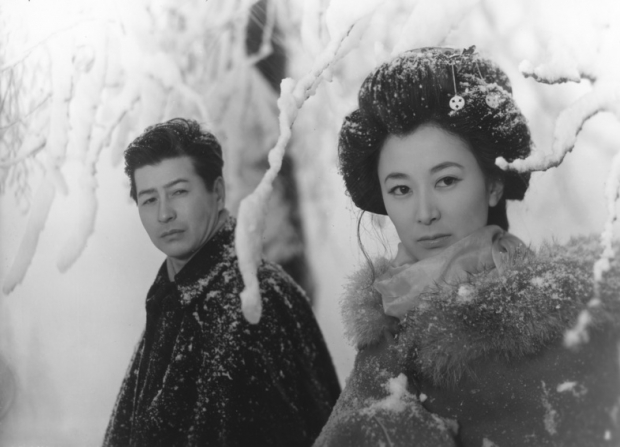kickstand-project.org – “Snow Country” (雪国, Yukiguni) is a 1957 Japanese drama film directed by Shirō Toyoda, which beautifully adapts the poignant novel by Yasunari Kawabata. The film is a compelling portrayal of the complex emotional landscapes of its characters, set against the serene and isolating backdrop of Japan’s snow-draped regions. It was featured at the 1958 Cannes Film Festival, marking its significance in the international cinematic landscape.
Plot Overview
The film tells the story of Shimamura, a wealthy dilettante from Tokyo, who travels to a remote hot spring town in the winter. Here, he rekindles an affair with Komako, a local geisha, with whom he shares a complicated and doomed romance. The narrative unfolds amidst the stark and captivating beauty of the snow country, where the harsh climate mirrors the emotional distance between the characters.
Themes and Cinematic Style
“Snow Country” elegantly captures themes of unfulfilled desire and the transient nature of beauty and love. The film employs a minimalist style, much like Kawabata’s literary technique, focusing on subtle emotional expressions and the evocative use of silence. The cinematography plays a crucial role, with the snowy landscapes serving as a metaphor for the isolation and inner turmoil of the characters.
Reception and Legacy
Upon its release, “Snow Country” was praised for its faithful adaptation of Kawabata’s novel and its artistic direction. The film is often lauded for its visual poetry and the delicate handling of its source material’s themes. Its entry into the Cannes Film Festival helped to cement its status as a classic in Japanese cinema, showcasing the depth and complexity of Japanese storytelling to a global audience.
Conclusion
“Snow Country” remains a significant work in the canon of Japanese film, offering a haunting exploration of love and loneliness. Shirō Toyoda’s adaptation not only honors Yasunari Kawabata’s literary masterpiece but also elevates it through the visual medium, creating a timeless narrative that continues to resonate with audiences today.




